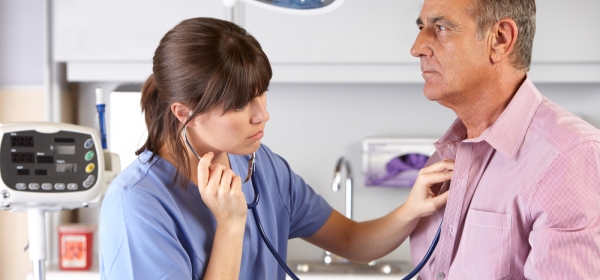When it comes to maintaining your health, it is important to have regular health checks. Health checks are essential to help prevent and diagnose a range of diseases and conditions, including diabetes, osteoporosis and high blood pressure.
Here is a list of common health checks and how often you need them.
Health checks for women:
Breast cancer – Women aged between 50 and 74 are advised to have a breast screen (mammogram) every two years. If you have a family or previous history of breast cancer, your GP will advise you on how regularly to have a screening. Self-checks are necessary. Women of all ages should visit their GP if they notice any changes in breast tissue.
Cervical cancer – It is recommended that women from the age of 18 have a Pap test every two years until the age of 70. If you have a family history of cervical cancer or a previous screening that revealed an abnormality, your GP will advise you whether you will need more regular screenings.
Health checks for men:
Prostate cancer – If you’re over 50, it is recommended you have a prostate exam every two years. If you have a family history of any type of cancer, you may require a regular screening test after the age of 40.
Testicular cancer – According to Cancer Council Australia, there is currently no routine screening test for testicular cancer. There is some doubt whether self-checks serve any benefit but your GP can advise whether a check is required for you.
Checks for men and women:
Eyes – It is recommended that Australians have their eyesight tested every year. From the age of 40, your risk of age-related eye conditions increases. If you have a family history of eye conditions, your optometrist can advise whether your need more regular checks.
Skin – It is advised that Australians should check regularly for skin abnormalities, such as moles and freckles, and notify a doctor if concerned. Men, who are at high risk, such as those who work outdoors, should receive a yearly exam by a doctor or dermatologist.
Teeth – It is recommended that Australians have dental checks at least once per year.
Bowel cancer – Men and women over the age of 50 are recommended to be screened for bowel cancer every one to two years. You may also need a colonoscopy every two to five years. If you have a family historical of bowel cancer or polyps, or have ever experienced bowel cancer symptoms, you may need a bowel screen test every one to two years after the age of 40.
Blood pressure – Those under 40 years without a family history of high blood pressure are advised to have their blood pressure checked every two years after the age of 18. If you are over 40, your blood pressure is on the high side or you have family history of high blood pressure, you should seek advice from your GP about regularity of screenings.
Osteoporosis – Men and women over 50 years who display risk factors of osteoporosis may require a bone-density scan. Risk factors include a family history, early menopause, low testosterone, thyroid conditions, use of some medicines, thinning body build, spinal deformity or stooped posture, and a previous facture or break (not caused by a fall or major trauma). Once you are over 70 years, your risk increases again.
Type 2 diabetes – Depending on your level of risk, you will need to be tested for type 2 diabetes annually or once every three years. Risk factors include a family history; pre-diabetes or gestational diabetes; aged over 45; bring overweight or obese; polycystic ovarian syndrome; high blood pressure; high blood cholesterol; smoking; sedentary lifestyle; history of angina, heart attack or stroke; and particular ethnic backgrounds. Check with your GP if you think you’re at risk.
Find out more from the Better Health Channel and Cancer Council Australia.
Related articles:
Are your vaccinations up to date?
Should you have your eyes checked?
Osteoporosis – are you at risk?

